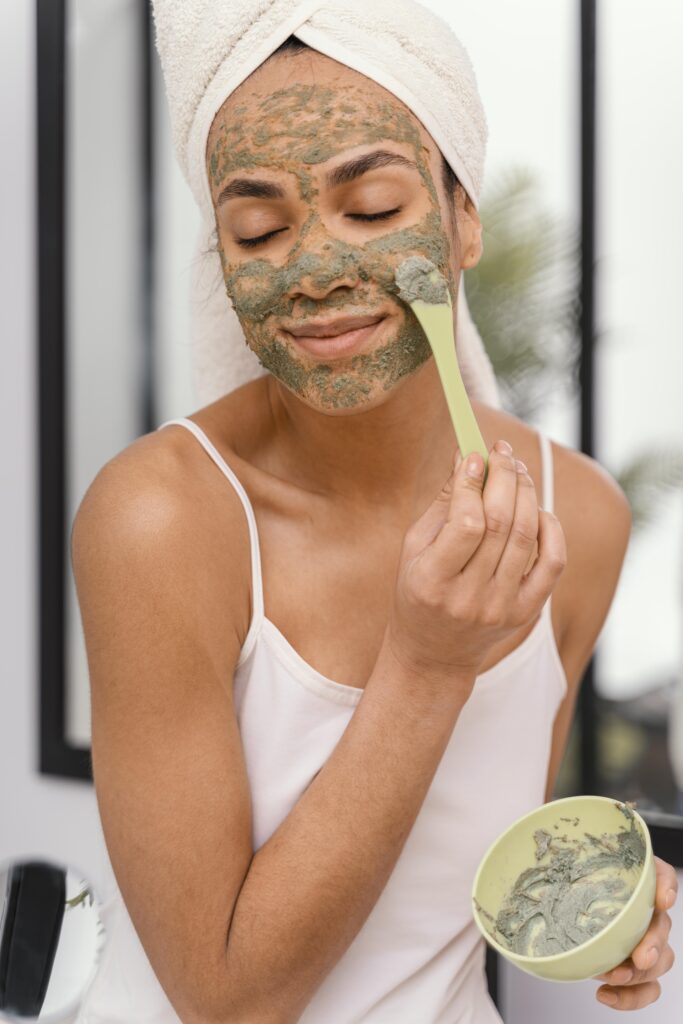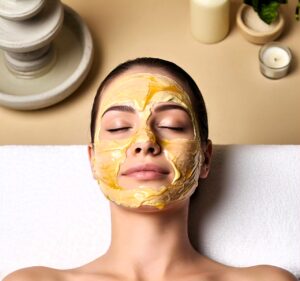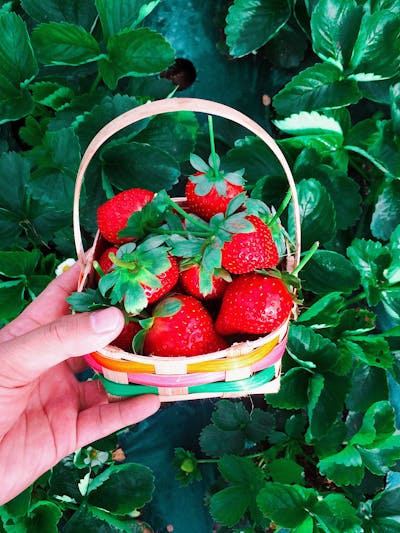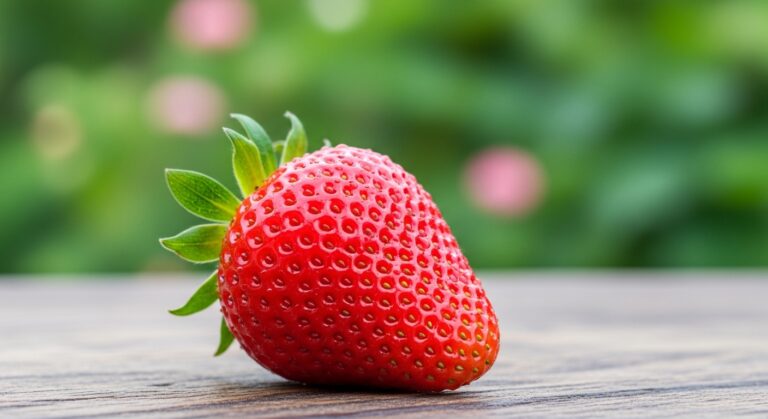Best Homemade Face Masks in Pakistan: Natural and Effective Recipes for 2025
Pakistan’s climate and environment can pose challenges for skin care. However, with the right ingredients, you can create effective homemade face masks tailored to your skin type. These best homemade face masks in Pakistan are affordable and safe, as they are made from natural ingredients easily found in Pakistan.

Got problems with acne, oily skin, wrinkles, or age spots? Having great skin isn’t only a matter of genes. It also involves adopting a good skin care routine which consists of cleansing, exfoliating, and moisturizing your face.
Some people visit spas to maintain a healthy, youthful appearance, yet these trips can be costly over time. The benefits are undeniable, but what if you can get the same results with a homemade face mask?
Benefits of Homemade Face Masks
-
Natural Ingredients: Free from harmful chemicals, these masks use ingredients that are gentle on the skin.
-
Cost-Effective: Homemade masks are much cheaper than store-bought products.
-
Customizable: You can create masks based on your skin type, whether it’s oily, dry, or sensitive.
Best Face Masks for Pakistan’s Climate
Multani Mitti and Rose Water Mask
Ingredients:
-
1 tablespoon Multani Mitti
-
1 tablespoon rose water
Method:
Mix Multani Mitti with rose water to form a paste. Apply to the face and let it dry for 15 minutes. Rinse with lukewarm water.
Benefits: This mask cleanses the skin and adds a natural glow.
Honey and Lemon Mask

Ingredients:
-
1 tablespoon honey
-
½ tablespoon lemon juice
Method:
Mix honey and lemon juice, apply to the face, and leave for 10 minutes. Rinse with lukewarm water.
Benefits: Brightens the skin and reduces blemishes.
Yogurt and Turmeric Mask
Ingredients:
-
2 tablespoons yogurt
-
A pinch of turmeric
Method:
Mix yoghurt and turmeric, apply to the face, and leave for 15 minutes. Rinse with lukewarm water.
Benefits: Makes the skin soft and glowing.
DIY Face Masks for Dry Skin
Yogurt and Honey Mask
Ingredients:
-
2 tablespoons yogurt
-
1 tablespoon honey
Method:
Mix yoghurt and honey, apply to the face, and leave for 15-20 minutes. Rinse with lukewarm water.
Benefits: Provides deep hydration and softens the skin.
Avocado and Honey Mask
Ingredients:
-
½ avocado (mashed)
-
1 tablespoon honey
Method:
Mix avocado and honey, apply to the face, and leave for 15-20 minutes. Rinse with cool water.
Benefits: Avocado deeply moisturizes, while honey soothes the skin.
DIY Face Masks for Sensitive Skin
Yoghurt, Honey, and Cocoa Powder Mask
Ingredients:
-
1 tablespoon yogurt
-
1 teaspoon honey
-
1 teaspoon cocoa powder
Method:
Mix all ingredients, apply to the face, and leave for 20 minutes. Rinse thoroughly.
Benefits: Soothes and nourishes sensitive skin.
Honey and Aloe Vera Mask
Ingredients:
-
2 teaspoons raw honey
-
1 teaspoon aloe vera gel
Method:
Mix honey and aloe vera, apply to the face, and leave for 10-20 minutes. Rinse with lukewarm water.
Benefits: Reduces inflammation and hydrates the skin.
Unique Ingredients for Face Masks in Pakistan
Multani Miti benefits for skin
Multani Mitti, also known as Fuller’s Earth, is a natural clay widely used in skincare for its numerous benefits. Here’s how it helps the skin:
- Deep Cleansing: Multani Mitti effectively removes dirt, oil, and toxins from the pores, leaving the skin fresh and rejuvenated. It acts as a natural cleanser, making it ideal for maintaining clear skin.
- Exfoliation: It gently removes dead skin cells, improving skin texture and softness. This exfoliating action helps reveal smoother, healthier skin underneath.
- Oil Control: Multani Mitti absorbs excess sebum, making it a great solution for oily and combination skin. It helps maintain a matte complexion and prevents greasy patches.
- Acne and Pimple Treatment: Its antibacterial properties fight acne-causing bacteria, while its cooling effect reduces inflammation. Regular use can minimize blemishes and scars.
- Brightens Skin Tone: Multani Mitti has natural bleaching properties that lighten blemishes, acne scars, and sun tan. It promotes an even skin tone and enhances the skin’s natural brightness.
- Soothes Irritation: The cooling effect of Multani Mitti makes it effective in calming sunburns, skin rashes, and infections. It reduces redness and provides relief from irritation.
- Tightens Skin: Regular application of Multani Mitti can tighten the skin, reduce sagging, and minimize pores. It promotes a firmer, more youthful appearance.
- Detoxification: It draws out impurities and toxins from the skin, keeping it healthy and radiant. This detoxifying effect helps maintain a clear and refreshed complexion.
- Hydration: When combined with hydrating ingredients like honey or milk, Multani Mitti helps retain moisture, preventing dryness and flakiness.
- Anti-Ageing: Rich in minerals, Multani Mitti improves skin elasticity and reduces the appearance of fine lines and wrinkles, promoting a youthful look.
In summary, Multani Mitti is a versatile, natural remedy for various skin concerns, offering deep cleansing, oil control, acne treatment, and skin brightening benefits. Its gentle yet effective properties make it suitable for all skin types.
Neem Powder: Antibacterial and Antifungal Properties
Neem powder, derived from the leaves of the neem tree, is a natural remedy with numerous benefits for the skin, hair, and overall health. Here’s a comprehensive guide on its benefits and how to prepare it at home:
Benefits of Neem Powder
- Treats Acne and Pimples: Neem powder’s antibacterial and anti-inflammatory properties combat acne-causing bacteria, reduce redness, and prevent breakouts. It also unclogs pores and removes impurities, promoting clearer skin.
- Fades Dark Spots and Blemishes: Rich in antioxidants, neem powder helps lighten dark spots, hyperpigmentation, and acne scars, promoting an even skin tone over time.
- Soothes Irritated Skin: Neem powder calms inflammation, redness, and itching caused by conditions like eczema, psoriasis, and insect bites. Its cooling effect provides relief for sensitive skin.
- Anti-Aging Properties: The antioxidants in neem powder fight free radicals, reduce fine lines, wrinkles, and sagging skin, and promote a youthful complexion.
- Deep Cleansing and Exfoliation: Neem powder removes dirt, oil, and dead skin cells, leaving the skin refreshed and radiant. It also tightens pores and improves skin texture.
- Controls Oil Production: Neem powder regulates sebum secretion, making it ideal for oily and acne-prone skin.
- Hydrates and Nourishes: Neem powder’s natural moisturizing properties hydrate dry skin, restore pH balance, and prevent flakiness.
How to Prepare Neem Powder at Home
Ingredients:
-
Fresh neem leaves
Steps:
-
Collect Neem Leaves: Pluck fresh neem leaves from a neem tree.
-
Wash and Dry: Rinse the leaves thoroughly to remove dirt and let them dry completely in the shade for 2-3 days.
-
Grind into Powder: Once dried, grind the leaves into a fine powder using a blender or mortar and pestle.
-
Store: Transfer the powder to an airtight container and keep it in a cool, dry place.
How to Use Neem Powder
- Face Mask for Acne: Mix 1 tablespoon of neem powder with rose water to form a paste. Apply to the face, leave for 15 minutes, and rinse with lukewarm water.
- Skin Brightening Mask: Combine neem powder with turmeric and honey. Apply, leave for 20 minutes, and rinse for a glowing complexion.
- Soothing Pack for Irritated Skin: Mix neem powder with aloe vera gel and apply to irritated areas for relief.
Neem powder is a versatile, natural remedy that addresses various skin concerns. By preparing it at home, you can ensure its purity and enjoy its numerous benefits.
Mango Pulp Benefits for Skin and How to Prepare It at Home
Mango pulp is a natural powerhouse for skincare, offering hydration, brightening, and anti-ageing benefits. Here’s a detailed guide on its advantages and how to prepare it at home:
Benefits of Mango Pulp for Skin
- Hydration: Mangoes are rich in water content, which deeply hydrates the skin, making it plump and supple.
- Brightening and Glow: The enzymes in mangoes exfoliate dead skin cells, promoting cell turnover and leaving the skin radiant and glowing.
- Anti-Ageing: Packed with antioxidants like vitamins A and C, mango pulp fights free radicals, reducing fine lines, wrinkles, and signs of premature ageing.
- Acne Prevention: Mango’s antimicrobial properties help reduce acne breakouts by cleansing pores and soothing inflamed skin.
- Even Skin Tone: Natural acids in mangoes lighten dark spots and blemishes, promoting an even and uniform complexion.
- UV Protection: Mangoes contain compounds that protect the skin from harmful UV rays, reducing sun damage and tanning.
How to Prepare Mango Pulp at Home
Ingredients:
-
1 ripe mango
Steps:
-
Peel the mango and remove the pit.
-
Scoop out the flesh and mash it into a smooth pulp using a fork or blender.
-
Store the pulp in an airtight container in the refrigerator for up to 2 days.
DIY Mango Face Mask Recipes
1. Hydrating Mango Mask
-
Mix 2 tablespoons of mango pulp with 1 tablespoon of honey and 1 tablespoon of yogurt.
-
Apply to the face, leave for 15-20 minutes, and rinse with lukewarm water.
2. Brightening Mango Mask
-
Combine 2 tablespoons of mango pulp with 1 teaspoon of lemon juice.
-
Apply to the face, leave for 20 minutes, and rinse off.
3. Anti-Aging Mango Mask
-
Mix 2 tablespoons of mango pulp with 1 teaspoon of green tea powder.
-
Apply to the face, leave for 20 minutes, and rinse with cold water.
4. Acne-Fighting Mango Mask
-
Blend 2 tablespoons of mango pulp with 1 tablespoon of curd and 1 teaspoon of honey.
-
Apply to the face, leave for 15-20 minutes, and rinse with water.
5. Exfoliating Mango Scrub
-
Mix 2 tablespoons of mango pulp with 1 tablespoon of oats and 1 teaspoon of milk.
-
Gently massage onto the skin, leave for 10 minutes, and rinse off.
Tips for Use
-
Always perform a patch test before applying mango pulp to the face.
-
Use fresh mango pulp for maximum benefits.
-
Avoid leaving masks on for too long to prevent irritation.
Mango pulp is a versatile, natural ingredient that can transform your skincare routine. Its hydrating, brightening, and anti-ageing properties make it a perfect addition to your summer skincare regimen.
-
Rice Powder: Brightens and hydrates the skin.
-
Carrot Pulp: Enhances skin glow and reduces wrinkles.
Benefits of Tomato Juice for Skin
Tomato juice is a natural elixir for skin health, offering a range of benefits due to its rich nutrient profile. Here’s why it’s a must-try:
- Fights Acne and Pimples: Tomato juice contains vitamins A and C, which reduce excess oil and unclog pores, helping to prevent acne and pimples. Its antibacterial properties also combat acne-causing bacteria.
- Brightens Skin Tone:
The high vitamin C content in tomato juice helps reduce hyperpigmentation and dark spots, promoting a brighter, more even complexion.
- Soothes Sunburn
Tomato juice’s cooling properties and antioxidants like lycopene help repair sun-damaged skin, reducing redness and inflammation.
- Anti-Aging Properties
Lycopene, a powerful antioxidant in tomato juice, combats free radicals, reducing fine lines, wrinkles, and age spots for a youthful appearance.
- Natural Exfoliation
The natural acids in tomato juice gently exfoliate dead skin cells, revealing smoother, healthier skin underneath.
- Hydrates and Moisturizes
Tomato juice is rich in potassium, which helps retain moisture, keeping the skin hydrated and preventing dryness.
- Tightens Pores
Its astringent properties shrink enlarged pores, giving the skin a smoother and more refined texture.
- Protects Against UV Damage
Lycopene in tomato juice provides some protection against harmful UV rays, reducing the risk of sunburn and skin damage.
How to Prepare Tomato Juice at Home
Ingredients:
-
2-3 ripe tomatoes
-
1 teaspoon lemon juice (optional, for added brightness)
-
A pinch of salt or sugar (optional, for taste)
Steps:
-
Wash the tomatoes thoroughly and remove the stems.
-
Cut the tomatoes into quarters and blend them in a blender until smooth.
-
Strain the mixture through a fine sieve or cheesecloth to remove seeds and pulp.
-
Add lemon juice, salt, or sugar if desired, and mix well.
-
Serve immediately or refrigerate for up to 2 days.
How to Use Tomato Juice for Skin
- Direct Application: Apply fresh tomato juice directly to the skin using a cotton pad. Leave it on for 10-15 minutes before rinsing off for a refreshed and glowing complexion.
- DIY Face Mask; Mix 2 tablespoons of tomato juice with 1 tablespoon of honey or yogurt. Apply to the face, leave for 15-20 minutes, and rinse off for hydrated, brightened skin.
- Spot Treatment: Dab tomato juice directly on acne spots or dark areas using a cotton swab. Leave overnight and rinse in the morning for targeted results.
Tomato juice is a versatile, natural remedy that can transform your skincare routine. Its hydrating, brightening, and protective properties make it a perfect addition to your daily regimen.
-
Turmeric: Brightens and reduces redness.
-
Rose Water: Soothes and hydrates the skin.
Using Simple Rose Water Spray During Summer in Pakistan
Yes, using a simple rose water spray during summer on the face in Pakistan is highly beneficial. Here’s why:
Benefits of Rose Water in Summer
- Hydration and Refreshment: Rose water is a natural hydrator that replenishes lost moisture, especially during Pakistan’s hot and humid summers. It helps combat dryness caused by excessive sweating and sun exposure, leaving the skin feeling refreshed and revitalized.
- Soothes Irritation and Redness: With its anti-inflammatory and antiseptic properties, rose water calms irritated and sunburned skin. It reduces redness and inflammation, making it ideal for soothing sensitive skin during summer.
- Tightens Pores: The mild astringent properties of rose water help tighten enlarged pores caused by heat and sweat. It also unclogs pores, preventing dirt and oil buildup, which can lead to acne and breakouts.
- Balances Skin’s pH: Rose water has a pH level similar to the skin’s natural pH, helping to maintain its balance. This reduces the risk of dryness, irritation, and excess oil production, making it suitable for all skin types.
- Reduces Acne and Blemishes: Its antibacterial properties help fight acne-causing bacteria, while its antioxidants reduce blemishes and promote clearer skin.
- Provides a Natural Glow: Rose water clarifies the skin, removes excess oil, and enhances its natural radiance, giving it a healthy, glowing appearance.
How to Use Rose Water
-
Cleanse your face with a mild cleanser.
-
Spray rose water generously on your face and neck.
-
Allow it to air dry or gently pat it into the skin.
-
Follow up with a lightweight moisturizer or sunscreen.
Why It’s Perfect for Pakistan’s Climate
Pakistan’s summers are characterized by intense heat, humidity, and pollution, which can lead to skin issues like dryness, irritation, and acne. Rose water’s soothing, hydrating, and protective properties make it an excellent addition to your summer skincare routine.
In summary, rose water is a versatile, natural solution for maintaining healthy, glowing skin during Pakistan’s harsh summers. Its gentle yet effective properties make it suitable for all skin types, especially sensitive skin.
Best Natural Ingredients for Soothing Sensitive Skin
The best natural ingredients for soothing sensitive skin are those that are gentle, hydrating and possess anti-inflammatory properties. Here are some of the most effective options:
- Aloe Vera: Aloe vera is renowned for its soothing and healing properties. It calms redness, reduces irritation, and provides deep hydration without clogging pores. Its anti-inflammatory effects make it ideal for sensitive skin.
- Chamomile: Chamomile is a natural anti-inflammatory that helps reduce redness and irritation. It’s particularly effective for calming sensitive skin and is commonly found in gentle skincare products.
- Calendula: Derived from marigold flowers, calendula has powerful anti-inflammatory and healing properties. It soothes irritation, promotes skin regeneration, and is perfect for sensitive or damaged skin.
- Oatmeal: Colloidal oatmeal is highly effective for calming inflamed skin. It forms a protective barrier, locks in moisture, and relieves itching, making it ideal for conditions like eczema or psoriasis.
- Honey:
 Honey is a natural humectant that retains moisture in the skin while offering antimicrobial benefits. It soothes irritation and helps repair the skin barrier.
Honey is a natural humectant that retains moisture in the skin while offering antimicrobial benefits. It soothes irritation and helps repair the skin barrier.
Shea Butter: Rich in vitamins A and E, shea butter deeply moisturizes and nourishes sensitive skin. Its anti-inflammatory properties help reduce redness and irritation.
- Centella Asiatica (Gotu Kola): This herb is known for its skin-calming and hydrating properties. It strengthens the skin barrier, reduces inflammation, and promotes healing.
- Rose Water: Rose water has antioxidant-rich and anti-inflammatory properties. It soothes redness, hydrates the skin, and is gentle enough for daily use.
- Green Tea: Green tea is packed with antioxidants that reduce inflammation and protect sensitive skin from environmental stressors.
- Lavender Essential Oil: Lavender oil has calming and anti-inflammatory properties. It soothes irritated skin and provides a relaxing aroma, making it a great addition to skincare routines.
These natural ingredients are effective for soothing and protecting sensitive skin, offering hydration, calming irritation, and promoting overall skin health.
How Does Oatmeal Help in Soothing Sensitive Skin?
Oatmeal is highly effective in soothing sensitive skin due to its unique properties and composition. Here’s how it works:
- Anti-Inflammatory Properties: Oatmeal contains compounds like avenanthramides, which have strong anti-inflammatory effects. These help reduce redness, irritation, and itching, making it ideal for conditions like eczema, dermatitis, and psoriasis147.
- Moisture Retention: As a natural humectant, oatmeal attracts and retains moisture in the skin, preventing dryness and maintaining hydration. This is particularly beneficial for sensitive skin, which often struggles with moisture loss245.
- Protective Barrier: Colloidal oatmeal forms a protective barrier on the skin’s surface, shielding it from environmental irritants and pollutants. This barrier also helps lock in moisture and repair the skin’s natural protective layer147.
- Soothing and Cooling: The emollient properties of oatmeal provide a soothing and cooling effect, which alleviates itching and discomfort caused by dryness or irritation137.
- Gentle Exfoliation: Ground oatmeal acts as a mild exfoliant, removing dead skin cells, dirt, and oil without causing further irritation. This helps keep the skin clean and smooth68.
- Rich in Nutrients: Oatmeal is packed with vitamins (like vitamin E), minerals, and antioxidants that nourish the skin, promote healing, and enhance its overall health358.
- pH Balancing: Oatmeal helps balance the skin’s pH levels, which is crucial for maintaining a healthy skin barrier and preventing irritation12.
- Relief from Itching: Its antioxidant and anti-inflammatory properties make oatmeal effective in relieving itching caused by conditions like eczema, insect bites, or dryness357.
Oatmeal for All Types of Sensitive Skin Conditions?
Yes, oatmeal can be used on all types of sensitive skin conditions due to its gentle, soothing, and anti-inflammatory properties. Here’s how it benefits various sensitive skin issues:
- Eczema and Atopic Dermatitis: Oatmeal, particularly colloidal oatmeal, helps restore the skin barrier, reduce itching, and soothe inflammation. It locks in moisture, preventing dryness and irritation associated with eczema.
- Psoriasis: Oatmeal’s anti-inflammatory properties help reduce redness, scaling, and itching caused by psoriasis. It also forms a protective barrier, shielding the skin from further irritation.
- Dry and Itchy Skin: As a natural humectant, oatmeal attracts and retains moisture, alleviating dryness and itching. Its emollient properties soften and smooth the skin.
- Sunburn and Mild Burns: Oatmeal provides a cooling effect, reduces inflammation, and promotes healing for sunburn and minor burns. It soothes the skin and prevents further damage.
- Acne and Irritated Skin: Oatmeal gently exfoliates, removes excess oil, and soothes irritated skin. Its anti-inflammatory properties help reduce redness and swelling associated with acne.
- Chickenpox and Insect Bites: Oatmeal baths or masks relieve itching and irritation caused by chickenpox or insect bites. Its soothing properties provide immediate comfort.
- General Sensitivity: Oatmeal is hypoallergenic and safe for daily use, making it suitable for those with highly sensitive skin. It maintains the skin’s pH balance and strengthens the natural barrier.
Safety Considerations
While oatmeal is generally safe, individuals with oat allergies or celiac disease should avoid it. Always patch-test new products and consult a dermatologist for severe skin conditions.
In summary, oatmeal is a versatile, natural remedy for soothing and protecting all types of sensitive skin conditions, offering hydration, calming effects, and barrier repair.
How Often Should I Use a Face Mask for Sensitive Skin?
For sensitive skin, it’s recommended to use a face mask 1-2 times per week to avoid overstimulation or irritation. Gentle, hydrating masks with soothing ingredients like aloe vera, oatmeal, or chamomile are ideal. Avoid exfoliating or harsh formulas, and always patch-test new products to ensure they don’t cause adverse reactions. Listen to your skin’s response and adjust frequency accordingly127.
By incorporating oatmeal into skincare routines—whether through colloidal oatmeal baths, masks, or moisturizers—individuals with sensitive skin can experience significant relief and improvement in skin health.
Benefits of Using Natural Ingredients in Face Masks for Sensitive Skin
Using natural ingredients in face masks for sensitive skin offers numerous benefits, making them a gentle and effective choice for skincare. Here are the key advantages:
- Gentle on the Skin: Natural ingredients like aloe vera, oatmeal, and honey are free from harsh chemicals and synthetic additives, reducing the risk of irritation or allergic reactions. They are particularly suitable for sensitive skin, which is prone to redness and inflammation12.
- Soothing and Calming: Ingredients such as aloe vera, cucumber, and oatmeal have anti-inflammatory properties that help soothe irritated skin, reduce redness, and provide relief from discomfort12.
- Deep Hydration: Natural humectants like honey and avocado lock in moisture, keeping the skin hydrated and preventing dryness. This is especially beneficial for sensitive skin, which often struggles with moisture retention12.
- Nourishment and Repair: Ingredients like yoghurt and banana are rich in vitamins, minerals, and antioxidants that nourish the skin, promote cell regeneration, and improve overall skin health12.
- Anti-Aging Benefits: Natural ingredients such as turmeric and green tea are packed with antioxidants that combat free radicals, reduce signs of ageing, and promote a youthful glow12.
- Customizable and Safe: Homemade masks allow you to tailor the ingredients to your skin’s specific needs. Additionally, natural masks are less likely to cause adverse reactions, making them a safer option for sensitive skin12.
- Cost-Effective and Accessible: Natural ingredients are often affordable and easily available, making them a practical choice for regular skincare routines12.
By incorporating natural face masks into your skincare regimen, you can enjoy healthier, calmer, and more radiant skin without the risk of harsh side effects.
These homemade face masks are easy to make and highly effective for maintaining healthy, glowing skin. By using natural ingredients, you can address your skin concerns without exposing it to harsh chemicals. Try these recipes and enjoy the benefits of radiant, nourished skin!
Black Seeds 2025: Unveiling the Power of Health Benefits and Uses



👌